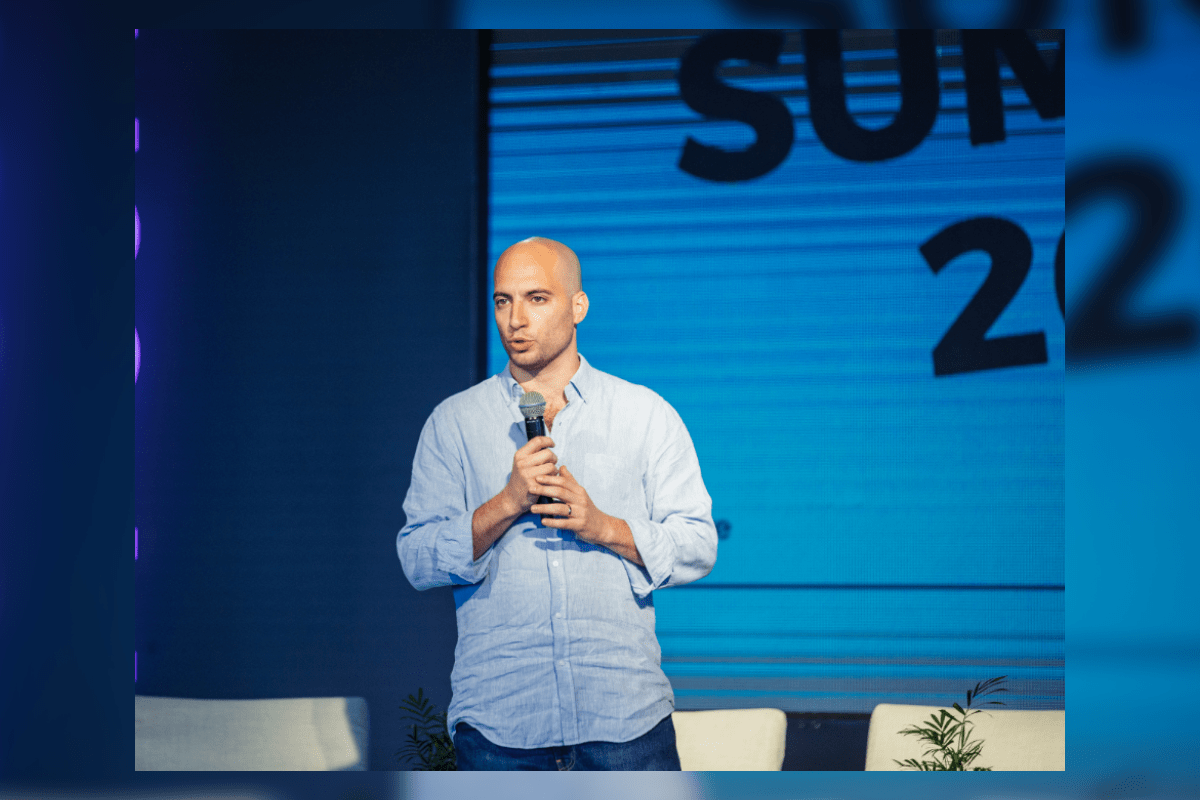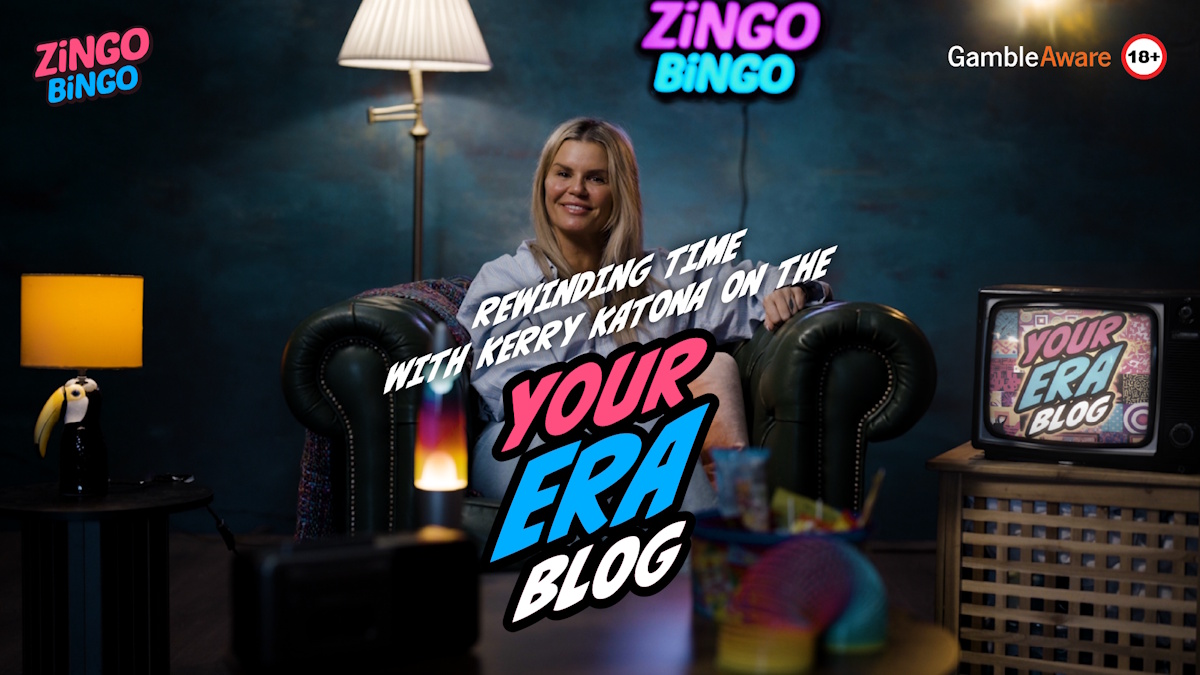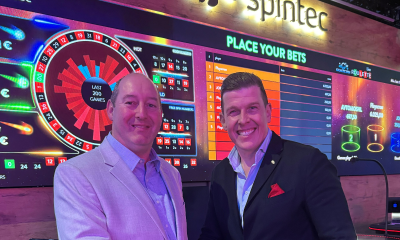Industry News
“Players Who Feel Safe Are More Likely to Stay with A Sole Operator For Longer”

While iGaming brands amass social responsibility fines by the millions allowing unhealthy behavior go unchecked, a better way exists for both operator and player
Responsible Gaming is more than just an industry buzzword or something to look out for. It has real-life consequences for everyone involved: brands, operators and, more importantly – regular people. As the National Council on Problem Gambling marks its Gambling Awareness Month, we stopped to take stock of social responsibility in the iGaming industry – is enough being done? What is holding us back as an industry? And what will the future bring?
The Brands & Regulator
Recent years have seen a crackdown by the regulator on many iGaming fronts, specifically social responsibility or as we know it – Responsible Gaming. In 2021 brands amassed more than £15M in fines for failing to meet social responsibility regulations and protect at-risk players. The trend is gaining momentum, just three months into 2022, operators have already amassed over £15M in social responsibility fines, yes, similar to the entirety of 2021. The total sum of penalties in 2019 covering all violations? A ‘mere’ £17M. Operators need to comply and fast to keep the money on their side of the table.
The people
The human price of operators’ reluctance to comply with social responsibility regulations is clear. There are degrees of unhealthy behavior, but at its worst, a gambling problem can devastate a person’s life, affect their loved ones, mental health, livelihood, and more. The risk shouldn’t be underestimated, regulatory zeal suggests.
“From my study and understanding these pathways, it seems that the need for entertainment and escapism leads certain players. In other cases, they’re driven by more impulsivity issues and a lack of ability to control one’s behavior,” said Sally Gainsbury, Director of the University of Sydney Gambling Treatment & Research Clinic.
“This doesn’t only affect the individual themself, but also 6-10 people around them. That’s why it’s important to prevent harm before they reach this critical level.”
So what’s stopping operators from simply, you know, following Responsible Gaming regulations? “The biggest hurdle is the lack of understanding of the appropriate KPIs and required actions brought down by regulators to work best towards minimizing gambling harm,” said Gainsbury.
If operators limit their most active players, the VIPs of sorts, it’s only reasonable to assume they’ll suffer massive revenue hit, much higher than any fine. But acting on RG makes more financial sense than one might think. “In the modern iGaming world, which includes land-based casinos, sports betting, digital, and all gaming forms, you don’t have to choose between revenue and socially responsible gaming,” said Michael Pollock, Spectrum Gaming Group’s Managing Director.
“The companies that tend to be the most profitable and the market leaders are the ones that take this responsibility seriously for several reasons: One – if you’re irresponsible, you’re leaving your customers dry. You want the customer to afford what they are spending. That’s the heart of responsible Gaming. Two, if you want the public’s trust and to be recognized as one that can be trusted with their money, RG has to be front and center in your business practices. If not, you’re not going to be a market leader. And three, if you don’t take the responsibility seriously, regulators will prevent your brand from renewing your license,” added Pollock.
The solution
Optimove, the leading CRM Marketing platform, has a different approach to Responsible Gaming. It offers a predictive model to identify players-at-risk and recognizes three maturity levels of an operator regarding responsible Gaming:
- Basic – Providing players the ability to self-exclude at any time. This is typically also the most rudimentary requirement of most regulated regions.
- Competitive – Exploring the various attributes that players demonstrate before they self-exclude. By creating a segment of customers who self-excluded, operators can identify suspicious attributes to try and mitigate them and reduce the number of players who become at-risk players.
- Advanced – Implementing a machine learning algorithm that helps operators predict which players are likely to become at-risk ahead of time. Such algorithm also allows operators to differentiate between at-risk and VIP players, who often share a few similar attributes.
VIP or At-Risk?
In the UK there has been a clear move by the main Operators towards a mass market/recreational customer. The average player values dropped accordingly and VIP programs have basically came to an end. This has been driven by the concerns around problem gambling and the big overlap between what was previously described as a VIP and what is now understood to be problem gambling issues.
Many companies still have two separate departments, CRM and RG, but the reality is that the result of this operational setup and the contradictions between definitions of success in each field, means that the different teams are not necessarily driving in the same direction when it comes to player care.
Use outreach to educate
Instead of creating player journeys consisting of only promotional campaigns, operators should begin putting a heavier emphasis on educational and informative content that encourages players to adopt healthier behaviors and reduce the number of players who become at-risk.
Operators must communicate carefully in the competitive gaming market, where 1-to-1 marketing communications is still an integral part of the experience. By segmenting customers into tiers based on their risk levels and adjusting the informative-to-promotional campaign ratio accordingly, operators can maintain the marketing aspect, and improve their revenue, while instilling more robust socially responsible practices.
Metrics to monitor
If traditional CRM marketing focuses on promotional offers to measure incremental Net Gaming Revenue as the main KPI, socially responsible marketing mix needs to measure player migrations from one risk level to another and overall retention rates.
To identify the marketing strategies that work best to maintain a high level of healthy-player engagement, operators should measure their campaigns’ impact on player behavior over time. Similar to A/B/n testing different treatments, entire player-journeys should be tested to evaluate how they affect player behavior and risk-level migrations.
Using different CRM Marketing tools, like Optimove, operators can easily create entire marketing flows and monitor how players migrate from one risk level to another, and adjust their marketing strategies as necessary. Gaining insight into how both campaigns and flows perform can empower operators to optimize their marketing strategy and reduce the number of players who become at risk.
For instance, one gaming operator segmented its customers into tiers based on their low, medium, and high-risk levels. Players with a low-risk level were given the occasional promotional campaign, while players in the medium risk level received 30% of the promotional campaigns, and so forth.
The future
On the predictive side of things, there is a huge amount more that operators can be doing to identify behavioural issues at a much earlier point in the customer journey. Once predictive models – which help identify at-risk players – are in place, operators do not need take a manual binary decision on whether to cut the player off or leave them alone, but can begin taking the customer through a RG journey that may first provide instructive content around the issue. If the behaviour doesn’t change, then limits can be brought in before finally cutting the customer off.
In the near future Responsible Gaming will be integrated into all business sides and will not remain a siloed responsibility of few. That means an organizational overhaul around the issue as every department within an operator or platform must be guided by RG principles. For example, in CRM terms, it means CRM Teams will have:
- A clear understanding of what RG principles need to be followed.
- These principles will be converted to customer attributes that are easily trackable and monitorable.
- Teams will have programs in place to foment healthy gaming behavior.
- Teams will have marketing tools that autonomously redirect customers to those programs when needed (to prevent and amend situations).
Doing this at scale however is challenging which is why AI should be the lead in predicting, identifying and managing at-risk players. Once a player is identified as being at-risk, the AI algorithm will autonomously reassign them to the appropriate segment, where the messages are less salesy, focusing more on adjusting the behavior, understanding the problem better and taking a step back if needed.
Powered by WPeMatico
Gaming Laboratories International
GLI Promotes Patrick Cottingham to Director of Client Services, North America

Gaming Laboratories International (GLI) has promoted Patrick Cottingham to Director of Client Services, North America. Previously, he served as Senior Manager of Client Services. Prior to commencing his career as an engineer with GLI, he served with the US Air Force.
Cottingham’s dedication to his clients was clearly evident both inside and outside of GLI. He transitioned to the Client Services team where he progressed and built a team laser focused on providing the very best customer service where his and his team’s clients have benefited from his engineering and gaming experience.
Ian Hughes, GLI Chief Revenue Officer, said: “We are thrilled to announce Patrick’s well-deserved promotion to Director of Client Services for North America. Patrick leads a team of dedicated and committed client services representatives who ensure our clients receive the best service during their compliance journey with GLI.”
The post GLI Promotes Patrick Cottingham to Director of Client Services, North America appeared first on Americas iGaming & Sports Betting News.
Blueprintx
Zingo Bingo Launches “Your Era” Nostalgia Series Featuring Kerry Katona and Pat Sharp

Zingo Bingo Launches “Your Era” – A Social-First Nostalgia Series for 2026
Zingo Bingo has officially unveiled Your Era, a new short-form social media content series celebrating iconic throwbacks, shared nostalgia and the cultural moments that defined generations. The series launches in February 2026 and will roll out weekly across TikTok, Instagram, Facebook and YouTube.
Designed to strengthen Zingo Bingo’s identity as a home of nostalgic fun, Your Era focuses on authentic conversation rather than traditional promotional content. The format highlights music, fashion, technology and pop culture milestones that shaped each guest’s personal journey.
Kerry Katona and Pat Sharp Headline Series One
The first confirmed guests include Kerry Katona, singer and media personality best known from Atomic Kitten, and Pat Sharp, the iconic radio and TV presenter associated with classic UK entertainment shows. Additional celebrity names will be revealed throughout the year.
Each episode features five themed nostalgia segments crafted to spark memories, conversation and emotional connections among viewers.
What to Expect from “Your Era”
Every guest takes part in recurring throwback features designed to boost engagement and relatability:
- The Memory Bag – Guests reveal five nostalgic items and share the stories behind them
- Flashback Files – A rapid-fire interview covering music, fashion, tech and cultural trends
- Mixtape Memories – Guests curate throwback tracks for the official Your Era playlist
- Taste of the Past – Sampling retro sweets and snacks while rating nostalgia levels
- Yesterday’s News – A humorous headline-guessing game using real throwback media stories
The series aims to tap into the growing popularity of nostalgia-driven digital content while positioning Zingo Bingo as a community-led entertainment brand.
Built by Kinetic Digital and Blueprintx
Your Era has been developed by Zingo Bingo’s operators, Kinetic Digital, in collaboration with long-term creative partner Blueprintx. Blueprintx has previously supported digital and television campaigns for Kinetic Digital brands including Prime Casino and Slingo.
The production strategy prioritises shareable, short-form content optimised for social discovery and influencer amplification, with episodes distributed across dedicated platform pages as well as guest channels.
A Strategic Play for Community Engagement
Jack Watson, Brand Manager at Zingo Bingo, said the series reflects the brand’s commitment to fun, familiarity and connection.
“Your Era is about celebrating the music we replayed, the fads we cringe at and the memories that still make us smile. It’s designed to bring people together through shared nostalgia while reminding audiences that bingo is about enjoying those moments collectively.”
Series one will feature six guests throughout 2026, with new weekly segments designed to drive audience engagement and repeat viewership.
The post Zingo Bingo Launches “Your Era” Nostalgia Series Featuring Kerry Katona and Pat Sharp appeared first on Eastern European Gaming | Global iGaming & Tech Intelligence Hub.
Industry News
Ex-Paysafe VP Justin Fraser takes chief revenue officer role at Yaspa to drive global growth

Yaspa, the renowned fintech focusing on instant payments and identity solutions, today reveals the appointment of Justin Fraser as its Chief Revenue Officer.
Fraser becomes part of Yaspa’s executive team during a crucial period of global growth. He has more than 20 years of commercial leadership experience in the payments ecosystem, having occupied senior leadership positions at notable industry companies like Cybersource, Visa, and Paysafe.
Having a career centered on maneuvering through intricate payment environments, he offers knowledge in rapidly expanding, regulated sectors such as iGaming, cryptocurrency, and financial technology.
As the new CRO, Fraser will manage Yaspa’s worldwide commercial strategy, concentrating on expanding the company’s Intelligent Payment platform, which integrates open banking with AI-powered customer insights, throughout the UK, Europe, and North America.
Yaspa CEO James Neville said: “We are thrilled to welcome Justin to the team during this period of rapid acceleration. His deep expertise in navigating complex regulatory environments and his proven track record in scaling payment solutions are invaluable assets as we expand our footprint in the US and beyond. Justin’s appointment further strengthens our leadership as we continue to help businesses lower costs, grow revenues, and enhance financial compliance through open banking.”
Justin Fraser said: “Yaspa is at the forefront of the shift toward real-time payments. The company’s unique blend of open banking and AI-verified insights solves genuine friction for merchants, particularly in industries like iGaming. I am excited to join such an innovative team and look forward to driving the next phase of our commercial growth globally.”
Fraser will collaborate closely with the recently strengthened US team, which includes the newly appointed US Sales Lead, Peter Kula, and US Senior Solutions Manager, Jackson Esoda.
This statement comes after a year of significant growth for Yaspa, highlighted by increasing its workforce from 15 to 75 employees and successfully securing a $12 million investment round spearheaded by Discerning Capital. In this timeframe, the firm broadened its international presence with new ventures in Atlanta and Leeds, while winning esteemed honors such as the 2025 Payments Award for Real-Time Payments Innovation and a spot on the CB Insights Top 100 Fintech list.
The post Ex-Paysafe VP Justin Fraser takes chief revenue officer role at Yaspa to drive global growth appeared first on Eastern European Gaming | Global iGaming & Tech Intelligence Hub.
-

 Amusnet6 days ago
Amusnet6 days agoWeek 7/2026 slot games releases
-

 Aphrodite’s Kiss6 days ago
Aphrodite’s Kiss6 days agoLove on the Reels: Slotland Introduces “Aphrodite’s Kiss”
-

 Brino Games6 days ago
Brino Games6 days agoQTech Games integrates more creative content from Brino Games
-

 Denmark7 days ago
Denmark7 days agoRoyalCasino Partners with ScatterKings for Company’s Danish Launch
-

 Baltics7 days ago
Baltics7 days agoEstonia to Reinstate 5.5% Online Gambling Tax From March 1
-

 Booming Games7 days ago
Booming Games7 days agoTreasure Hunt Revival — Booming Games Launches Gold Gold Gold Hold and Win
-

 ELA Games7 days ago
ELA Games7 days agoELA Games Unveils Tea Party of Fortune — A Magical Multiplier Experience
-

 Bet Rite7 days ago
Bet Rite7 days agoSpintec Expands into Canada with Bet Rite



















